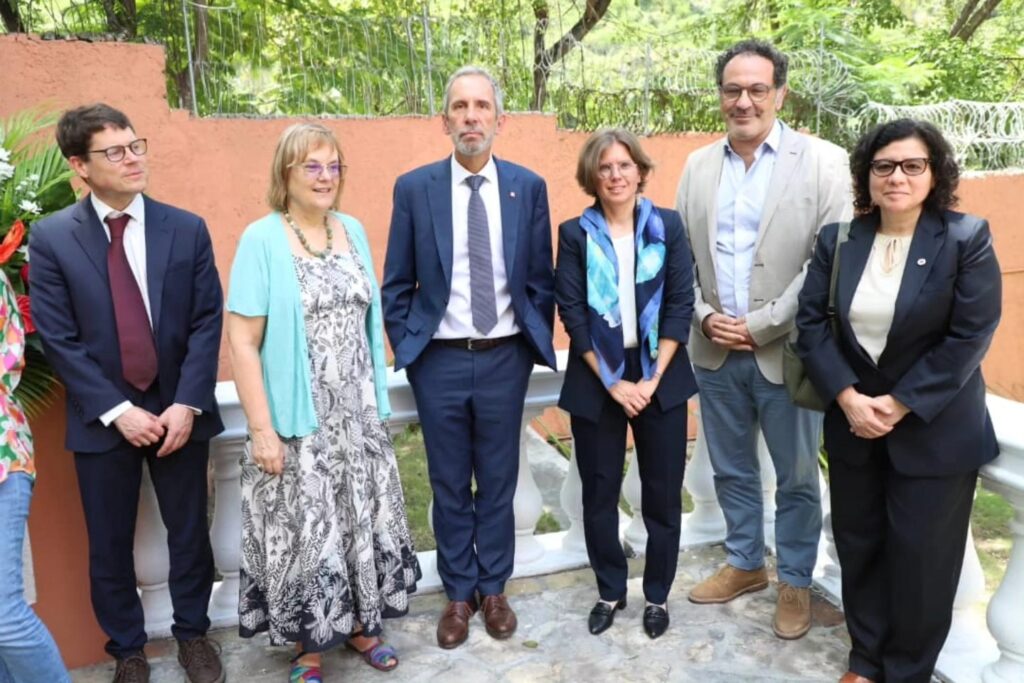On September 16, 2025, the Swiss Cooperation in Haiti inaugurated its new office in Montagne Noire, reaffirming its commitment to the Haitian people. But as the applause fades, a question lingers: did Swiss Cooperation really help Haiti? The answer is yes, but with important limits.
Swiss Cooperation, officially the Swiss Agency for Development and Cooperation (SDC), has been active in Haiti for nearly two decades. After the 2010 earthquake, it played a visible role in emergency relief and reconstruction, financing shelters, distributing survival kits, and helping rebuild communities shattered by disaster. Its presence was also felt after Hurricane Matthew in 2016, when it supported communities with housing and early-warning systems for natural hazards.
In rural areas, SDC initiatives like PAGAI helped farmers adopt better techniques and improve productivity, while local governance programs like PAGODE trained municipal authorities to collect taxes, plan budgets, and expand services. Swiss Cooperation also supported water and sanitation programs, resulting in functioning community-run water systems in some regions. Through its partner Swisscontact, it invested in technical and vocational training, helping young Haitians access skills and jobs in a struggling labor market.
These interventions were not just symbolic, for many communities, they were lifelines. To this day, water systems and farm cooperatives supported by Swiss Cooperation continue to serve local populations.
Mardi 16 septembre, Dominik Stillhart officially inaugurated the new humanitarian office of the Swiss Cooperation in Port-au-Prince in the presence of Ambassador Rita Hammerli-Weschke, several members of the international community, members of the Haitian government, partners, and local actors. This new space will allow the Cooperation to work even more closely with communities and partners, to strengthen humanitarian action on the ground and highlight Switzerland’s commitment in Haiti.
Still, Haiti’s challenges are far larger than what small-scale projects can solve. Political instability, gang violence, chronic poverty, and weak institutions have all limited the reach of international aid. While Swiss Cooperation projects worked at the community level, they were too small in scale to significantly change national conditions.
Sustainability was also a challenge. Once donor funding ended, some programs, especially in governance and infrastructure, struggled to survive. Local authorities lacked the resources, or insecurity made long-term planning impossible.
And in 2024, Switzerland began phasing out its bilateral aid to Haiti. That decision raised doubts about whether the cooperation’s work was meant as a lasting partnership or simply a temporary patch in moments of crisis.
So, did Swiss Cooperation really help Haiti? The evidence suggests that it did, particularly in rural communities, disaster zones, and local governance. Farmers, students, and families in affected regions saw real improvements in their lives thanks to Swiss-funded projects. But these gains were localized and limited. They never reached the scale required to address Haiti’s systemic crises, nor did they always endure after Swiss support ended.
Swiss Cooperation leaves behind a mixed legacy: one of real but modest achievements, tangible for those who benefited directly, but less visible when measured against Haiti’s ongoing national struggles. For the people it touched, it mattered. For the nation as a whole, it was not enough.










